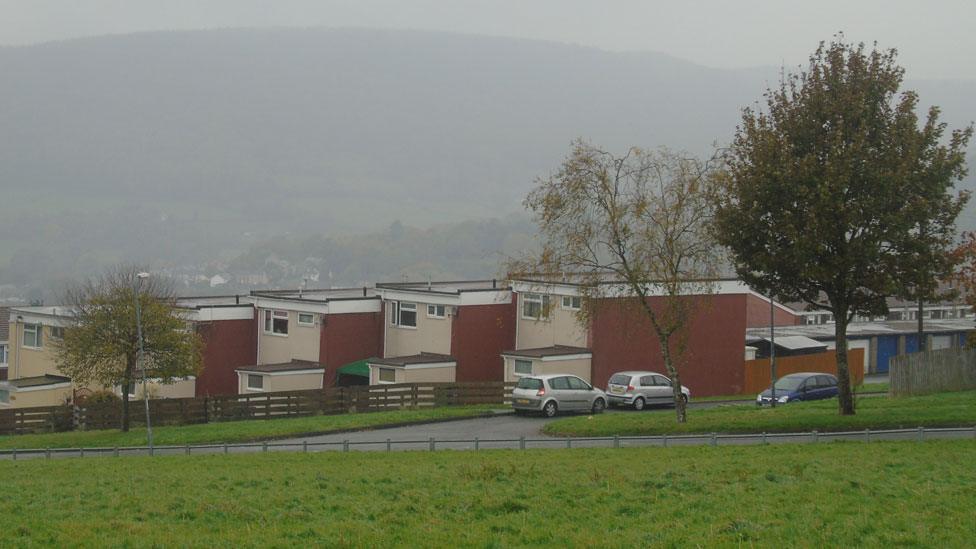South Wales Valleys action plan 'lacks ambition'
- Published
- comments
John Gates says he did not have to think about finding work when he left school
A landmark programme to improve the south Wales valleys is "bland" and not reaching those who most need it, a social policy think-tank has said.
Our Valleys, Our Future, external was unveiled by the Welsh Government a year ago, with the aim of creating 7,000 new jobs.
But the Bevan Foundation said it was "more of the same".
One ex-miner said the valleys were facing a "crunch" time, with young people having to move away to find work.
Ministers said reversing decades of decline could not be achieved in months and they were "taking it seriously"
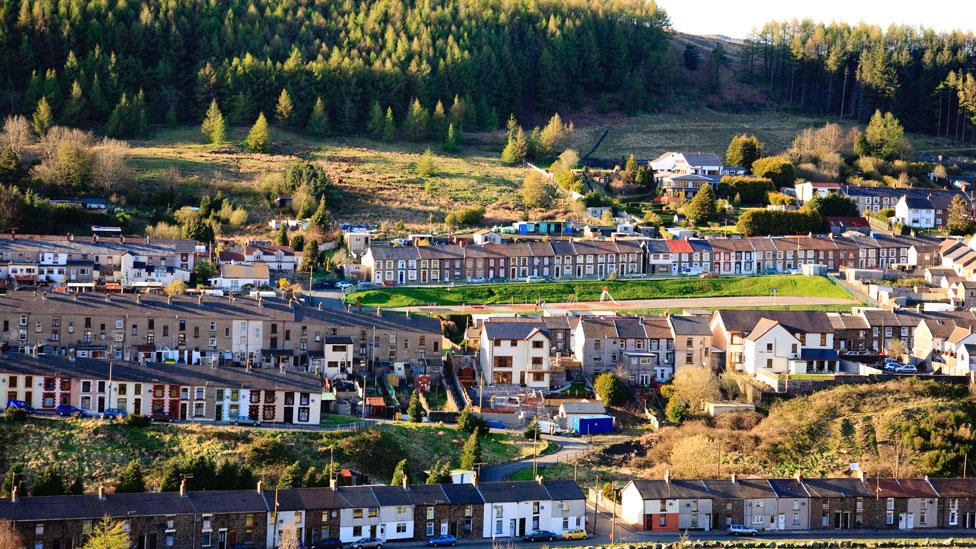
The action plan to revitalise the valleys included a promise of thousands of jobs and work to improve public services, health, wellbeing and tourism.
But the Merthyr Tydfil-based Bevan Foundation said recent investment in Taffs Well and Nantgarw was not in core valley areas.
Dr Victoria Winkler, director of the Bevan Foundation said she does not believe it goes far enough
Dr Victoria Winckler, its director, said: "It's a matter of scale.
"The target to get 7,000 into work sounds really impressive but if you look a bit deeper, that's not very ambitious at all, it's around about the numbers achieved over the last few years and if we carry on doing more of the same, the valleys won't change."
Dr Winkler said unemployment was 25% of young males in some areas and there had been job losses in retail and small factories.
And she said she was "puzzled" how the Welsh Government could live with deprivation virtually on its doorstep without sufficient proposals to push investment and skills.
But Local Government and Public Services Secretary Alun Davies said they were concentrating on projects which would make a difference and wanted a "greater tempo" of investment.
"I share your impatience - but what I want to do is get this right and so that in the future we look back on decisions well taken which had the greatest possible impact," he said.

Dione Conaty, 22, a law graduate, is hoping for a job with a legal firm - but she may have to move away from Maesteg
'With the right help, it can grow'
Dione Conaty, 22, has a law degree from Swansea University, but is back in Maesteg and knows she will have to move if she wants to specialise in human rights law.
"Maesteg doesn't have a lot of variety especially if you've got a degree in something specific like law or business," she said.
She is currently working part-time in a coffee shop.
"Sometimes it's a bit harder because you want to get the money and you want to pay off your debt and you have to go further on to get that bigger salary."

One of Mr Gates' projects is making waistcoats for the local ukulele band
John Gates is a former miner who is now leading community project Maesteg Shedquarters, external, to encourage men to do practical work - from woodwork to music instrument-making.
At it height, 6,000 miners worked in the valley. Maesteg in Bridgend county now has above average unemployment, while nearly 40% have no qualifications.
Mr Gates stopped working underground in the mid 1970s after nearly 20 years. He moved into training until the pits closed and has only worked part-time since the 1990s. He said losing a job can be like a bereavement.
"When a man's in work he has a position, he has status, he has authority," he said.
"When he's made redundant, all that goes. He becomes his wife's helper. I've known many occasions when wives have said men are under their feet.
"It's particularly hard in the valleys. It's harder hitting. When the heavy industry went, the purpose for the valleys went. Everyone went into that depression. I think that's turning round, the only way is up.
"When the pits were here, we had five different mining institutes in the valley - with games rooms for billiards and darts but also a library for self- education. We've become those miner's institutes if you like.
"Those of us who are left realise we have to help ourselves. The community is building itself up for the ground but what we need is help. With the right help it can grow. What we don't want is people parachuting themselves in telling us what to do.
"There are no big employers. But each pit would have between 300 to 1,000 men and we were the border for the Margam steelworks. In the Llynfi valley in my lifetime there were three collieries.
"When I left school at 15, I went to the pit - nobody asked me - it was a smooth transition. My grandchildren are leaving education at 20 to look for a job. Now we've come to a crunch - there are loads of 20-year-olds with degrees and no work in the area and they have to move. And if they stay here they have to travel.
"The hopes of finding a big employer are draining away. Maesteg town centre is just a shadow of what it used to be and everyone blames the internet - but it might be the internet could be the saviour of the valley, if you can just put your goods online and sell it from home."

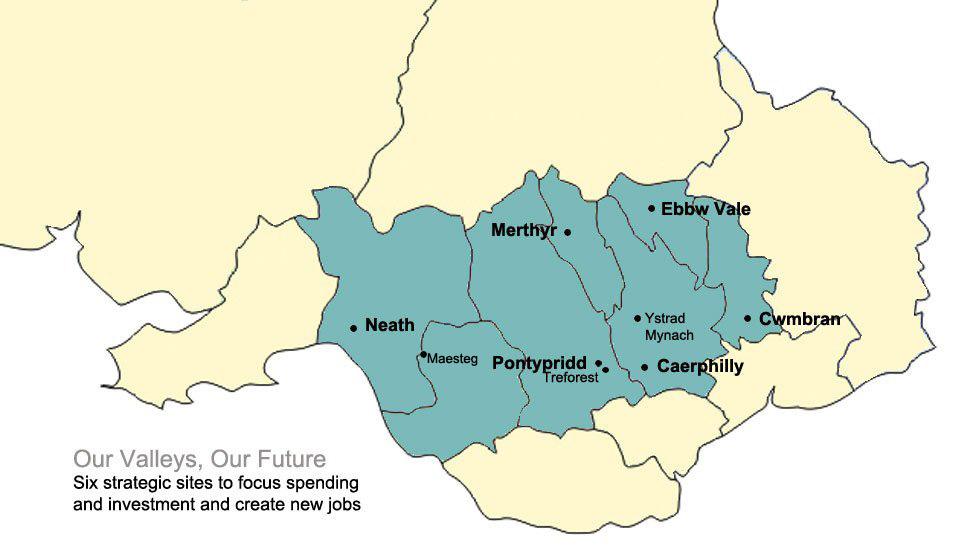
Enterprise zone for whole valleys urged
Communities First areas 'in limbo'
'Bleak' vision for 2020 in Wales
What has happened so far?
Seven "strategic hubs" were unveiled, external to focus public money and attract private sector investment.
In a progress report, the Welsh Government said 1,000 people have been helped into work in the last 12 months and an additional 100 new enterprises have been created in the taskforce area.
Transport for Wales is to be based in Pontypridd and the Department for Work and Pensions is setting up a new headquarters in Nantgarw, with staff moving from Cardiff, Newport, Cwmbran, Merthyr and Caerphilly in 2021.
An industrial clothing factory is opening in Ebbw Vale and a train depot is to open in Taffs Well.
Mr Davies is hopeful of more job announcements soon.
He said it was now time for investment in individual projects to begin and it was a "serious effort to deliver a comprehensive investment programme".
A look at how previous valleys initiatives were first launched nearly 30 years ago
Mr Davies, who represents the valleys constituency of Blaenau Gwent, said people were not looking for quick fixes but "a serious programme" to address issues.
They also wanted a better quality of life: Access to public transport, support for learning and issues like fly-tipping tackled.
But he said the 7,000 jobs target was "realistic" at a time of great economic pressures, and there was a vision beyond it.
- Published20 July 2017
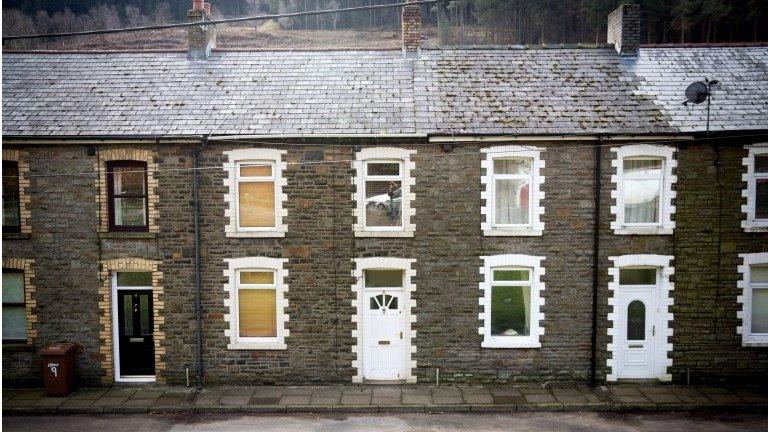
- Published13 April 2017
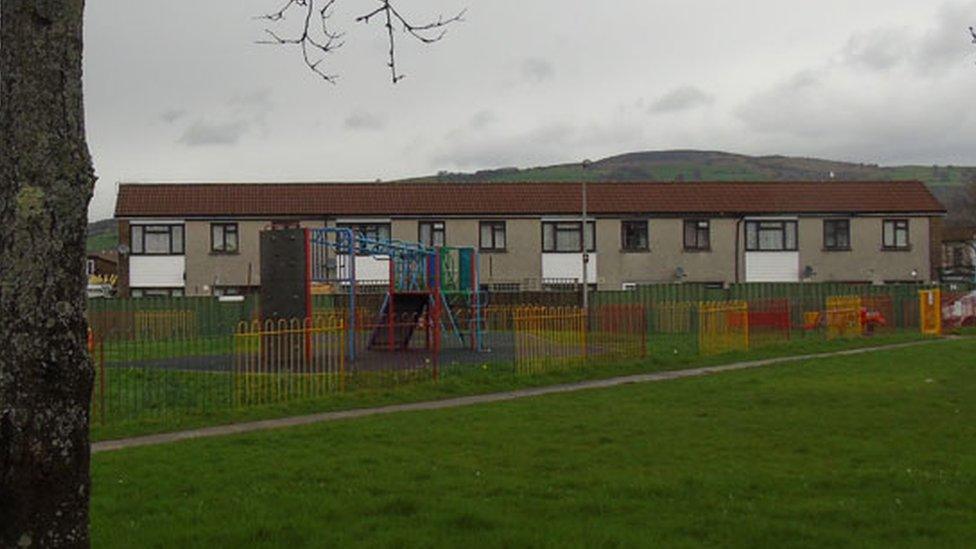
- Published27 October 2016
